|
3 Signs You Are Cultivating Unrealistic Expectations The definition of expectations is “a belief that someone will or should achieve something.” (www.dictionary.com)
There are two types of expectations. High expectations, and then there are unrealistic expectations. High expectations can serve as a tool that motivates us to achieve our goals. On the other hand, unrealistic expectations can hinder our ability to identify unhelpful practices, leading to possible frustration, self-criticism, self-degradation, and toxic perfectionism. Our expectations of ourselves and those around us can influence how we deal with people and different situations. Signs that you may be cultivating unrealistic expectations towards yourself and others. 1. Having a perfectionist mindset- While there may be benefits to being a perfectionist, a few examples would be good attention to detail and increased motivation. Trying to achieve perfection may seem harmless, but that pursuit could cause you to constantly worry about perfecting everything. It could trigger unhealthy consequences in your mind, body, and social life. You may experience high stress, leading to burnout, anxiety, and depression. What are some tips for you to overcome perfectionism?
2. Control Issues - Trying to manage the outcome of how a situation will work out or how you would like for it to work out can create unrealistic expectations, spoken and unspoken. When you tend to want to control everything around you, it becomes frustrating when some things don’t go your way, and let’s face it, there are certain situations that we can never control. When control becomes a problem, it affects the overall quality of your personal and professional life. What can you do to be less controlling?
3. Irrational Beliefs - Would a reasonable person have these thoughts and beliefs, or are your thoughts about the outcome more extreme, especially for yourself and the need to be perfect? What irrational beliefs could trigger our need to excessively control and perfect things? It could be due to long-term negative habits. The expectations from others put on us ever since childhood. Self-sabotage. Habituating negative self-talk. Making conclusions about life, situations, and people. Refusing to understand other people’s perspectives. How can we overcome those irrational thoughts?
All of us eventually self-improve, whether it's intentional or not. Trying to change a habit doesn't go overnight. It requires practice.
0 Comments
Why is it important to build your expertise as a leader?
We question our ability to lead as experts because of the idea that we have to know everything in order to be effective leaders. Doubt becomes the barrier of why we are not showing up. Common statements like "I don't know what I need to be doing" or "What if somebody asks me something that I don't know?" come up when I talk to mental health clinicians about why they do not see themselves as the expert. The truth is - you don't have to know everything to be seen as the expert in your niche or specialty. We are not encyclopedias, we are not the news. You know what you know about your lane and how you show up in that lane. These are four reasons that you may not be showing up as the Expert. The first reason is what can be considered as perceived imposter syndrome. What is perceived imposter syndrome? Imposter syndrome has been going around, everybody's been talking about, "Oh, I have imposter syndrome. Somebody's going to find me out that I don't know what I know," but that's just perceived. That's just what you perceive other people are thinking about you. Truthfully, these people are probably not thinking about you. So, it's perceived imposter syndrome. The imposter that you are dealing with is your own internal thoughts, what you're thinking, what you're perceiving about what you may not know. You are the expert, you know what you need to know. You've been to school. If you are a counselor, you have been to school for three years or more to get your degree, you have done what you needed to do, or you're working towards what you need to know about getting the license, so you have a level of expertise about the areas that you're seeking to know about. We can't practice outside our competency, but what we can do is practice in the lane that we know about. Then as you are learning about more things that you want to be considered an expert in another area, you do your due diligence to become an expert. If it's getting a certification, if it's studying more, if it's practicing more, you could become an expert in that lane, but right now, you know what you need to know to be considered the expert in the area that you are focusing on. Reason two is having a lack of clarity about your knowledge, skills, and abilities (KSAs). Sometimes we flood ourselves with so much knowledge that we are not really clear about what we know, and it can be overwhelming. My suggestion for this is to narrow down to two to three areas that you want to be known for and that you want to be seen as the expert. Narrow those areas down, get clear about what you know, what your knowledge is, what your skills are, what your abilities are in those areas and share that from that space. So, let's say for instance, one of your areas is self care for millennials. What do you know? What is your knowledge around that area? What is your knowledge around self care? What is your knowledge around millennials? How does self care and millennials work together? So, you have to get clear about what you know, what your skills are and what you’ve been doing to build your skills in serving those individuals. The third reason is fear of failure. The reason why we do not show up is because we are fearful of failing. We don't want to be made a fool of, we don't want to be exposed, so we will not show up in our area because we think somebody else has more knowledge or we say to ourselves, “What if I fail? What if what I say is wrong?" As leaders, we usually have done our fact finding to make sure what we are presenting is true because we have studied it, we have researched it, we have read, we have taken certifications, we have taken classes (do you get the jest). So, we know what we know. So when we talk about fear of failure, that is just another way we sabotage ourselves in not showing up as the expert we are. The final reason is lack of consistency. We need to pick a social media platform, one or two, show up consistently in that message. I have been guilty of it. I have been scattered, but I have learned that when I show up consistently in that lane, that is where people begin to look for me. People will begin to talk about you when you are being consistent and showing up consistently with your messaging on your platforms. They know that's your lane. They're like, "Oh, if I need this, I can reach out to blah, blah, blah, because that is their lane. That is where they show up consistently, and I can refer people to them. So remember, the four reasons why you may not be showing up as the expert is number one, perceived imposter syndrome. Two, lack of clarity about your knowledge, skills, and abilities. Number three is fear of failure. Finally is lack of consistency. Dr. Lacrecia Dangerfield, LPC-MHSP, ACS is a mental health professional who teaches mental health entrepreneurs and leaders to build an authentic brand and grow their business so they can lead the life they are meant to live. Can you believe that we are over half way through the first month of 2019?
Over the past few years, I have been using a word to focus on for the year. It usually means what I want to do more of during the year. Initially, I was thinking that my word would be Abundance and Implement. During my quiet time and listening for what God wants me to focus on - the word Nurture popped up. Nurture - 1. (n) care for and encourage the growth or development of 2. (v) the process of caring for and encouraging the growth or development of someone or something. I had conversations with two of my power circle sistas (these are women who I trust what they are saying to me) and they confirmed what had been rising up. One asked me “how is your heart?”during our lunch date. She began to ask me questions about how was I nurturing myself. Later that night the other texted me and asked how was I going to take care of myself more in 2019. I was like okay “God, I hear you.” Both of these women acknowledged that I am great at nurturing the growth and development of others but what am I doing to grow and develop “self”. The realization that as a counselor, leader and woman, I am great at nurturing others but I don’t do well at nurturing who I am as a woman. So my focus will be to nurture who I am as a woman. You may be asking how this looks for me:
Last thing, I was reading Dr. Nadia Brown’s blog about what her word for the year is. She shared her word but she also shared a question that her coach asked her the question “what would you like to create in 2019?” Leave in the comments or reply and let us know what is your word(s) for 2019 and what you would like to create in 2019. As always, Dr. Lacrecia One of the questions that I usually ask other counselors when I meet them is - “why did you choose to become a Counselor?”
Most of the time they start out with a story about how they have always been the friend who others came to for advice or their own story of going to a counselor and what they experienced. However, somewhere in the conversation, they say “I feel like I was called into counseling.” Calling - a strong urge toward a particular way of life or career. I remember my own call into the profession. In 1999, I took a Psychology of Adjustment Class as just something to do. The professor had us create a five year career/life plan. I had created my plan and it was based on getting a MBA and continuing in the business industry. During our class discussion, there was a classmate sitting next to me and he stated that he was going to Trevecca University to get a degree in counseling. It was like an alarm went off in me - my strong urge. I called to get more information and the rest is history. There are several routes we can take to answering our call into the profession. The path may not be clear at the beginning but as we gain more experience the path opens more. I remember when I answered the call into the profession, I questioned why. The path did not look like I expected. My professional journey has been one filled with twists and turns. My first job was working in community mental health as a Counselor II work with SPMI (severely persistently mentally ill) adults. Then I moved into a supervisor position that took me on a different journey. Now I am working with mental health professionals in my clinical and leadership services business. Understanding that the work we do is a calling is essential to creating a solid professional identity. How did you answer your call into the profession? As Always, Dr. Lacrecia~The Confident Counselor Leader P.S. I created a Niche Defining Worksheet that you may find helpful. Click here to get a copy. Hello December!!!!!!!
Can you believe that we are in the last month of the year? We can enter the month with the rush of trying to get everything done that we made goals to complete in January or we can reflect on the blessings of 2018 and chill. I actually like the last suggestion. So with that being said, I will make this blog post short. What are some things that you do to plan for the next year? I would like to share with you a couple of things I have done so far: I listened to Rosetta Thurman’s (Happy Black Woman) podcast on 5 Ways to Reignite Your Passion For Your Business. During the podcast, she talks about asking yourself “What do I want? What do I really want? What do I really, really want?” I pulled out my journal and reflected on these questions. I watched Aprille Franks-Hunt’s Planning For Profits training. During the training, she helps you plan products and services that you would like to launch quarter to quarter. I am going to practice what I preach and take some time to rest, review, reflect and recharge. As Always, Dr. Lacrecia - Confident Counselor Leader PS. Remember to join other leaders in the Confident Counselor Leader FB Community How many times have you heard - “________ is a great clinician but a horrible boss/leader?” or maybe not heard it but you have thought it or said it to yourself.
OR maybe I hear it more than others because I am an independent clinical supervisor and I hold space with overwhelmed and frustrated counselors. During these sessions, I try to remind the counselor that most clinicians who are placed in supervisory positions were not trained to lead. They were either forced into the position because of high turnover and no one else was there to do it or they were running low on fumes from direct service burnout and decided they would try their hand at being a supervisor/leader. In our masters programs, we are taught to be great clinicians but we are not taught how to lead. On the other side, when I call out the leader inside of that counselor - the look of fear or deer in the headlights stare. As counselors, we are called to lead but at times we shrink back because we don’t want to be named as the “great clinician but horrible leader.” In our masters programs, we are taught to be clinicians but we are not shown how to take the same skills and become great leaders in our community and the profession. During my doctoral studies, I researched leadership practices of Mental Health Counselors and leadership in the counseling profession. I posed a question, “are master’s level counselors adequately prepared for leadership roles in the profession?” The question posed could have been “do mental health counselors perceive themselves as leaders?” I based my study on James Kouzes and Barry Posner’s Five Exemplary Leadership Practices. They have researched thousands of individuals about their “personal best” leadership experiences. They discovered five common practices that exemplary leaders engage:
Before I discuss each of the practices and define a leader, I want to leave this right here and ask you “Are you called to lead?” - leave a YES in the comments. Join the The Confident Counselor Leader Community by clicking here As Always, Dr. Lacrecia P.S. If you have not gotten "The 5 Self - Care Tips for Professionals" click here Can I be honest with you? After my brand launch, I experienced that feeling of let down. I did not feel much joy because I was still wrestling with what is next. This usually happens to me after I do something big or accomplish a hard earned goal. I believed that the brand launch would be the secret bullet to ease me into my purpose. I knew I had a trip to the beach planned for the week after the launch. The beach is one of my happy places and it allows me to get quiet and listen. As I sat out on the balcony and watched the waves flow in and out, I found myself asking “Why do I struggle with easing into purpose?” I could hear my spirit (God) speak “look at how the ocean flows in and out”. The ocean knows that it was created to be the ocean (identity). The ocean knows its purpose - to flow in and out by being a preserver of life. The ocean does not question whether it has the clarity, capacity, confidence and courage to be the ocean. Why do we? The realization that when we are in alignment with who we were created to be and what we were created to do….it should flow like the ocean. Alignment with identity and purpose should be like breathing because it comes from the heart of God. In Genesis 1 - the bible speaks of how God spoke and the ocean took on its identity and purpose. The bible continue to speak of how God blew His breath into Adam and he took on his identity as man and was given purpose. I would like to believe that when God blow His breath into us in our mother’s womb (Jeremiah 1:5) - is when our identity and purpose collides and our call to impact is awaken. So you may be asking - why is it a struggle to ease into purpose? There are four areas of perceived lack that I have found that keeps us from flowing in the ease of purpose: Lack of Clarity The perception that we do not know who we are or what we were created to do is fostered by the avid clamor of outside noise. The way to gain clarity is to get quiet and ask yourself those deep questions. Who was I created to be? What was I created to do? The process of understanding you begins with YOU. Lack of Capacity The idea that we lack the capacity to be and do according to purpose. We believe that we do not have what it takes to go fully after what we truly desire. We are not filled vessels, we are able to give away our gifts through service and we receive from others through their gifts (Note: don’t misunderstand - I believe that our gifts make room for us and provides income). Write down what you believe that you do not have to complete the divine assignment and then ask God to fill you in those spaces. You have the capacity to do what you were created to do. Lack of Confidence Our level of confidence is tied to our belief in who we are and what we have the capacity to do in purpose. Remember that no one else can be a better you than you and you can not fail at being you. No, the journey will not be without missteps but it is your journey to purpose. Being confident in who you are evolves as you gain clarity about your authentic self and the capacity to which you are here to serve. This takes a mindset shift in how you see who you are and what you were created to do. Lack of Courage Courage allows us to foster the strength to do what frightens us. The ability to be and do has already been released inside of you to have impact in your community, profession and world. Psalm 27:14 reminds me that when I seek God and courage it will be given to me. While at the beach, I was able to gain greater clarity about my purpose. I realized that I have the capacity to share my expertise and experience in leadership which will grow my confidence and courage as I serve through building community and connection. Take a few minutes to get quiet and ask yourself - the following question: Who was I created to be and what was I created to do- how am I limiting myself with my perceived lack of clarity, capacity, confidence and/or courage? Leave your response in the comments. As Always, Dr. Lacrecia P.S. If you did not get your FREE gift “The 5 Self-Care Practices of Professionals” click here. October has always been my month! Not only is it my birthday month but some real cool professional and life milestones have happen for me in October and guess what this October will not be any different.
Are you asking? What will happen for you October 2018? Drumroll…………………………Drumroll…………………………………Drumroll As a way to celebrate my birthday, I will be launching my new brand drdangerfield.com. Check out the feel of the brand...the colors …logo...new services. Tell me what you think. Join the new Facebook Group The Confident Counselor CEO Community. We are leaders who are choosing how we work, where we work and how we take care of ourselves as we work. Surprise!!! I have a FREE gift for you... 5 Self-Care Tips For Professionals Click here to get yours today!!! |
AuthorDr. Lacrecia is a passionate leader dedicated to empowering mental health professionals with the resources, guidance and strategy to create lasting impactful careers. Archives
November 2022
Categories |
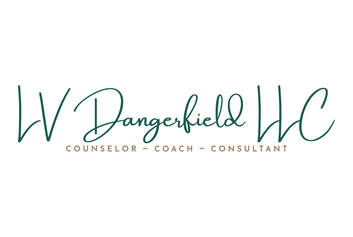



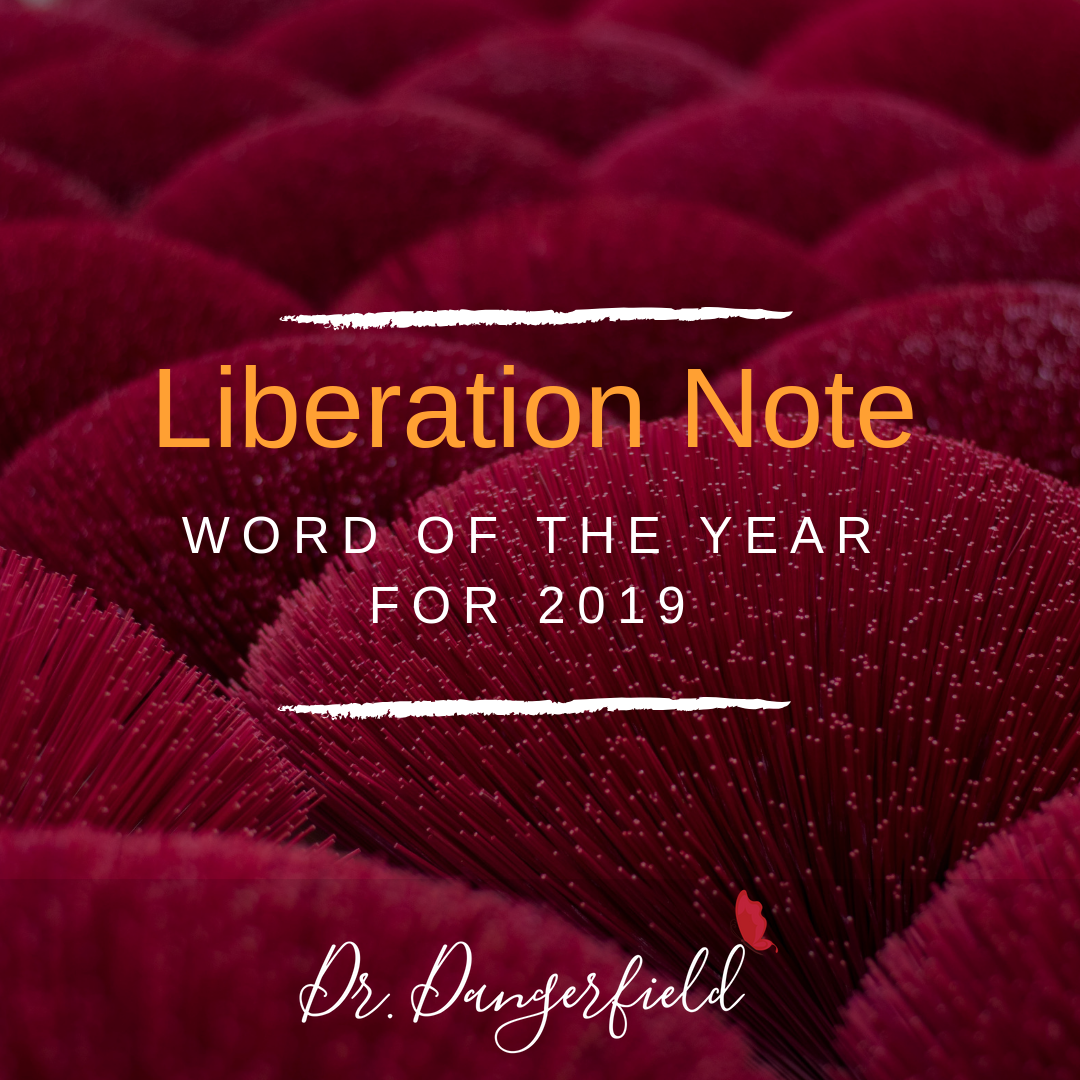
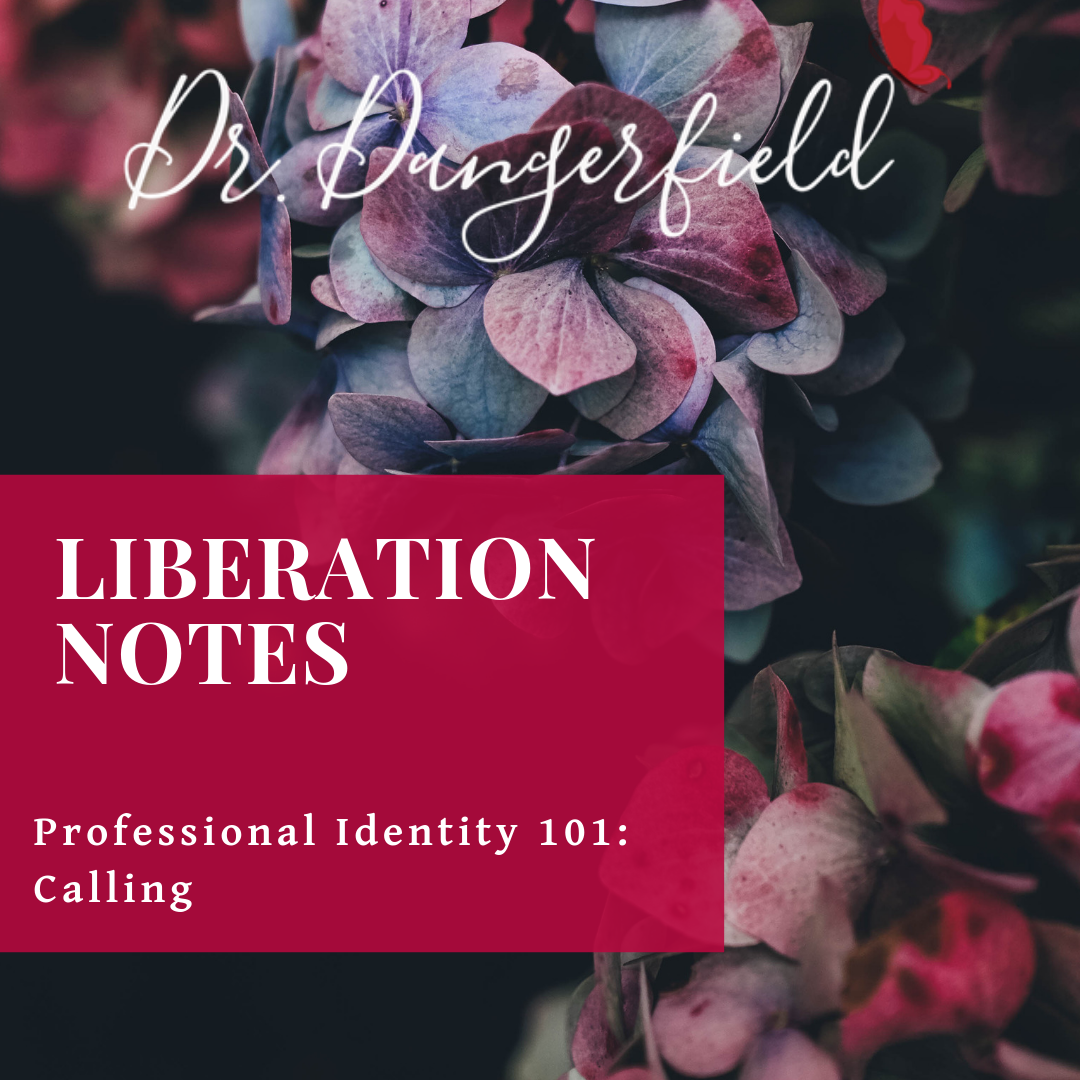

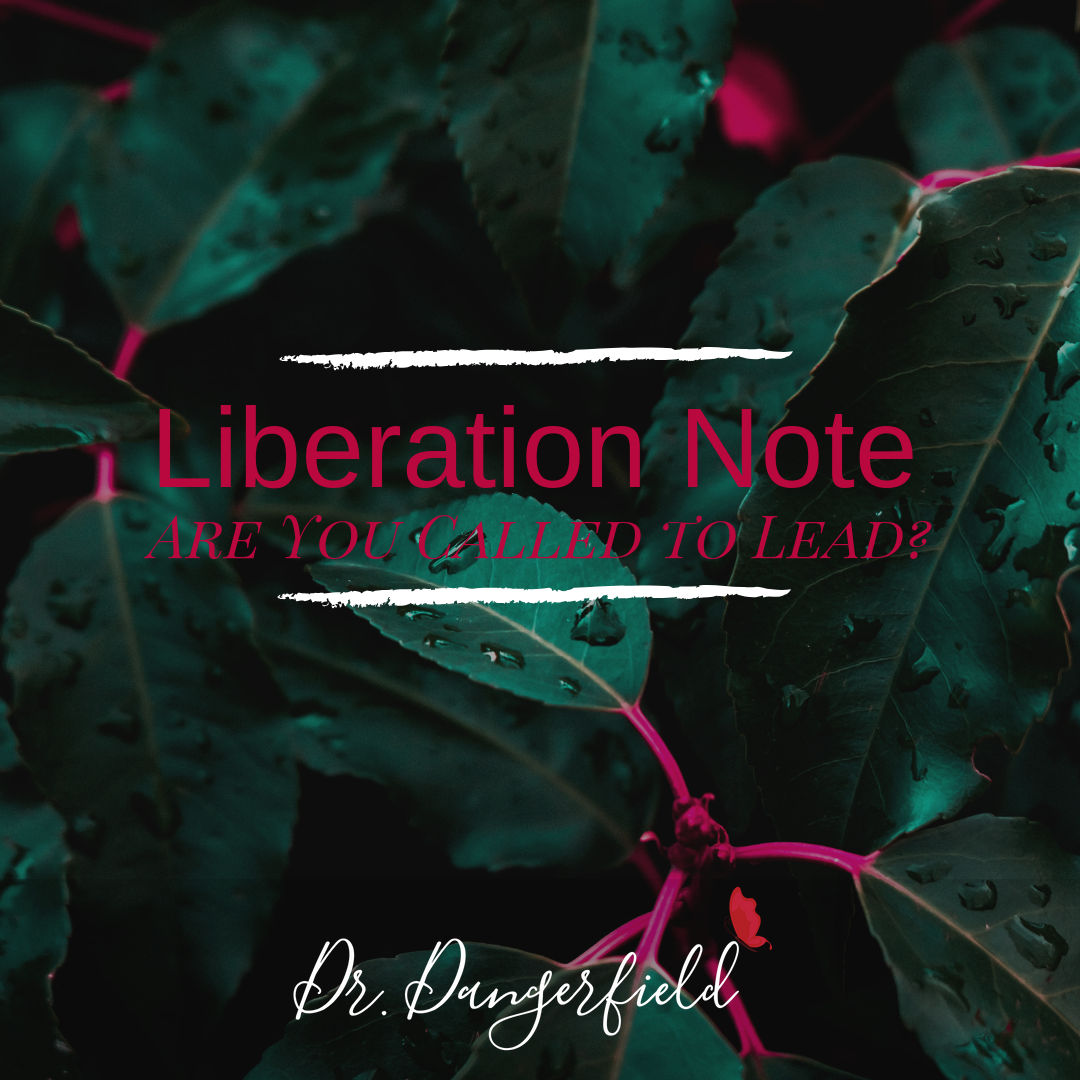
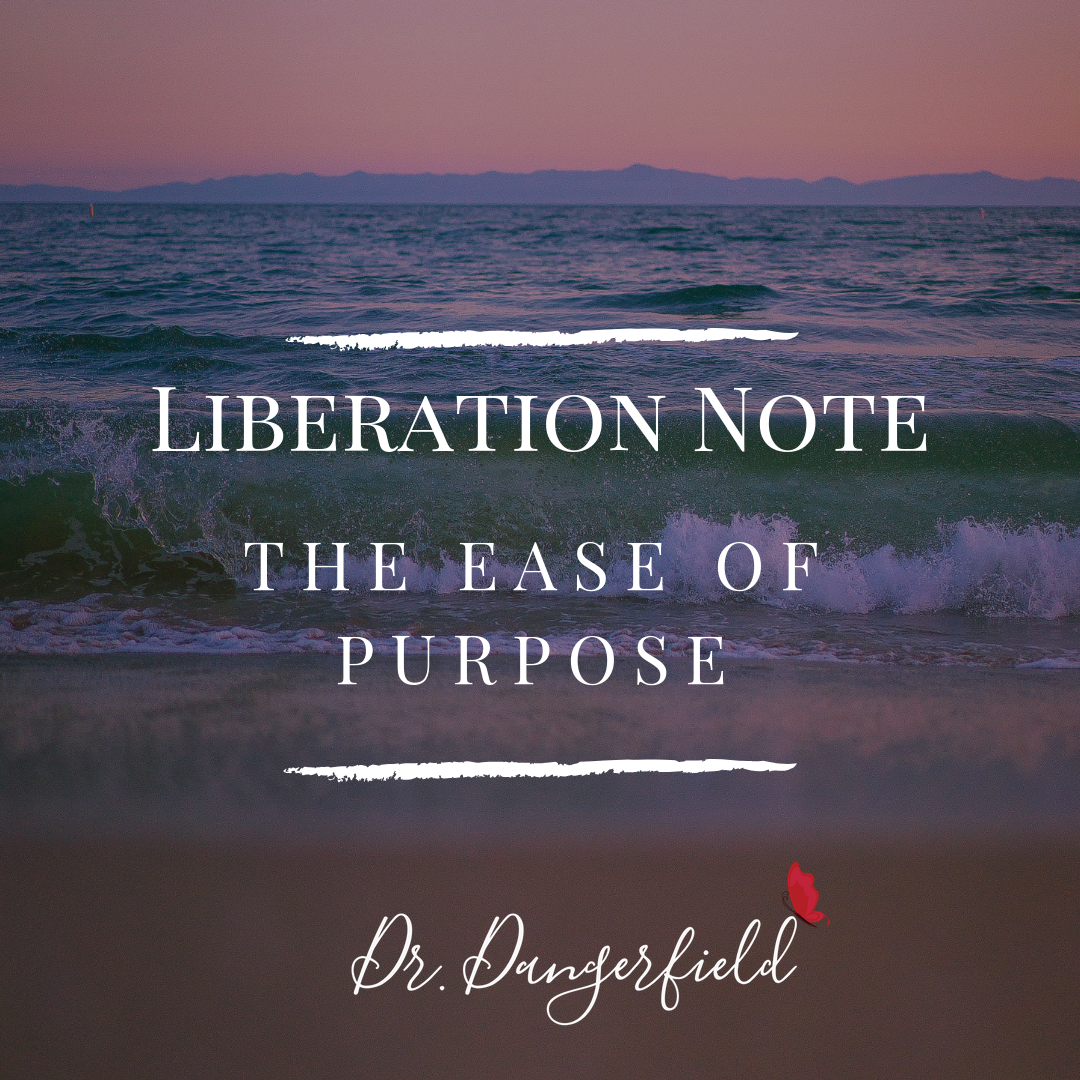
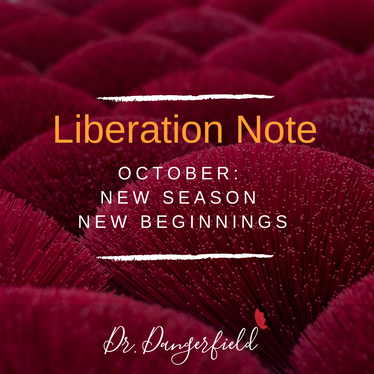

 RSS Feed
RSS Feed